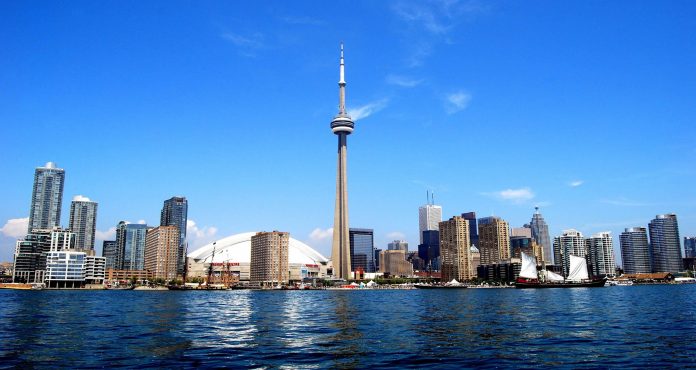Several laws are coming into effect in Canada in 2018, some starting January while others are slated to come into force later in the year. Following are the most major ones:
Legalization of Marijuana
The federal government has set July 2018 as the national deadline for legalizing recreational marijuana.
Marijuana can be sold to those 18 and older. Provinces have the powers to set their own minimum age requirements. They also have the responsibility to frame rules for the sales and regulation of marijuana.
For example while in Ontario a subsidiary of the Liquor Control Board of Ontario will handle pot sales, Manitoba is planning on allowing cannabis sales via private-sector retail outlets and online stores
The federal law allows eligible people to hold up to 30 gms of dried cannabis, or its equivalent if in non-dried form.
Extension of parental leave
A new law has extended parental leave, allowing new parents as of Dec 3 or later to spread 12 months’ of parental leave over 18 months
It also grants new family caregiver benefits which includes a 15-week leave given for care of a critically ill or injured adult, as well as 35-weeks of leave for care for a critically ill or injured child.
Introduction of Carbon price plan
The federal government is planning on introducing a $10 per tonne carbon tax by 2018. In case a province or territory fails to implement a carbon price plan , Prime Minister Justin Trudeau has said that the federal government will roll out a price for that province.
A carbon price plan can result in not only higher gasoline prices and heating bills, but also higher food prices.
Small-business tax Relaxation
Starting Jan. 1, the federal government is planning on introducing rules that reduces the tax burden for small-business owners by allowing ‘income sprinkling’, wherein some of their earnings can be shared with family members
The Department of Finance has detailed out the revised income-sprinkling rules for assessing if a relative has made meaningful contribution to the business. These test include checking if a family member has invested substantial capital or is meeting requirements related to minimum age or number of hours worked.
Harmful Microbeads Banned
January 1 onwards, the manufacturing and importing of toiletries containing plastic microbeads has been banned. Such microbeads are typically used in everyday beauty and health items such as facial scrubs, tooth paste and body lotions but are harmful to the environment.
Exemptions have been provided under the bill for natural health products or non-prescription drugs until July 1.
ONTARIO
Minimum wage increase and employment law changes
The Ontario minimum wage is set to increase from January 1 onwards to $14 per hour from $11.60 per hour.
Other changes introduced include three weeks of paid vacation to all those who have been with the company for five years, increasing the personal emergency leave available to employees of small companies, and granting of up to 104 weeks of unpaid leave to parents on death of their children.
Scalper bot banned
The new Ticket Sales Act has introduced a ban on scalper bots which are used to buy online large quantities of tickets for an event and then resell them for higher prices.
Under the new law, tickets cannot be sold for more than 50 per cent above the face value. It also makes it illegal to resell tickets purchased by bots knowingly .
QUEBEC
New rules for Uber drivers
From January onwards, the Quebec government is planning on introducing new rules regulating Uber drivers in the province.
They will need to undergo police background checks as well as 35 hours of training. Uber had initially threatened to pull out, but the ride-sharing company subsequently decided to stay on after meetings with transport minister.
NOVA SCOTIA
Autonomy for adults with intellectual disabilities
A new law the Adult Capacity and Decision Making Act will recognize in the province a person’s right to make their own decisions and live their own lives except when not possible due to impairment of capacity as proven in court.
ALBERTA
Changes Made to Employment Standards Code
A series of changes in Workplace law will come into effect from January 1 onwards which will include extension of unpaid job protection for cases of compassionate care leave, changes related to employees using their overtime hours as well as introduction of a new unpaid leave for employees facing a domestic violence situation.
Starting Oct. 1, 2018, the general minimum wage in the province will go up to $15 per hour, from $13.60 per hour.
Privacy to Gay-straight alliances in schools
Alberta passed this year the Bill 24 under which schools are prevented from denying or delaying the setting up of gay-straight peer clubs.
It also states that school officials can no longer inform parents if their children belong to a gay-straight alliance barring special circumstances.
Condominium Property Act changes favouring buyers
The Condominium Property Amendment Act, introduced by Alberta government helps condo buyers by enabling them to receive more information during purchase including details related to construction budgets and deadlines. While some provisions will go into effect from January 1 others will come into force later in the year.
NEW BRUNSWICK
Stricter payday loan industry rules
New regulations introduced for the payday loan industry in the state require fresh licensing requirements for loan businesses, along with a slew of disclosure requirements for lenders. These will come into effect from January onwards.
Family Day
New Brunswickers will get a new paid holiday starting 2018 called the Family Day. It will be observed across the province on the third Monday of every February.



